
Reading list - our favourite books this summer
Did you also read a lot this summer? We made some real headway on our bookshelves. After all, nothing beats reading a beautiful or thrilling book outside. In this reading list, you'll find our favourite books for the summer of 2022. If you have any suggestions, let us know via Twitter, Facebook or Instagram!
Have you ever searched the UBL Catalogue for a book to read for fun? It's definitely worth it. UBL has a large collection of English language literature that you can borrow through our catalogue. Many other collections also hold lots of interesting and fun fiction, non-fiction, biographies, poetry and even books on photography and cooking. In the list below, you can find our favourites for the summer of 2022, but there is much more to explore! Search the catalogue for your favourite author, title or topic and request your book. Have fun reading for the remainder of this summer!
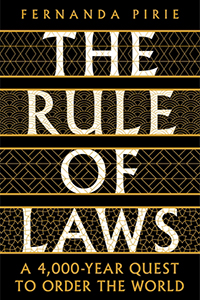
Fernanda Pirie, Rule of laws: a 4,000-year quest to order the world, 2021.
Rulers throughout history have used laws to impose order. But laws were not simply instruments of power and social control. They also offered ordinary people a way to express their diverse visions for a better world, to promote justice, combat oppression, and create order from chaos. In The Rule of Laws, anthropologist Fernanda Pirie traces the development of the Chinese, Indian, Roman, and Islamic legal systems and the influence these systems have on our world today.

James Kerwin, Fabrica: a journey into decay, 2021.
This beautiful photobook shows the work of photographer James Kerwin. He has travelled to undisclosed and out of bounds sites in about a dozen European countries capturing the decay and neglect of some stunning locations that have included derelict asylums, deserted chateaus, former power plants, under water structures and even entire cities such as Pripyat near Chernobyl. In his photography Kerwin captures the beauty of desolate places where time seems to have stood still. Accompanying text was written by Thijs Lenssen and translated by Ben Schoonbeek. Prefaced by Peter Post and Paloma García Garbí.
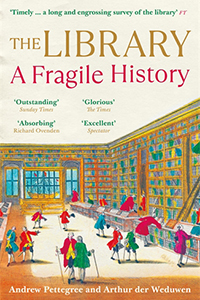
Andrew Pettegree and Arthur Der Weduwen, The library: a fragile history, 2021.
The idea of the library has been remarkably resilient, but libraries as buildings and collections are fragile and can be reduced to ruines in few decades or even days. In The library Pettegree and Der Weduwen explore the contested and dramatic history of the library, from the famous collections of the ancient world to modern and online public resources. Along the way, they introduce us to the antiquarians and philanthropists who shaped the world's great collections, trace the rise and fall of fashions and tastes, and reveal the heinous crimes and petty misdemeanours committed in pursuit of rare and valuable manuscripts.
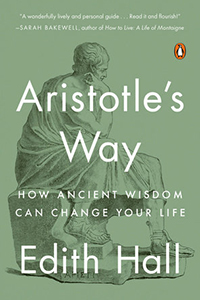
Edith Hall, Aristotle's way: how ancient wisdom can change your life, 2020.
In Aristotle's Way, Edith Hall, professor Classical Literature at King’s College London, presents ten practical and universal lessons for finding happiness. According to Aristotle, happiness is not about well-being, but instead a lasting state of contentment, which should be the ultimate goal of human life. We become happy through finding a purpose, realizing our potential, and modifying our behavior to become the best version of ourselves. But most importantly, Aristotle understood happiness as available to the vast majority us, but only if we decide to apply ourselves to its creation – and he led by example.
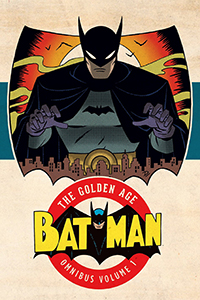
Bill Finger & Bob Kane, Batman, the Golden Age omnibus, 2015
Take a trip back to your childhood years with this double-issue full of original comic strips from the early days of Batman. These original stories from Detective Comics and Batman show how the Dark Knight, with the help of Robin and Commissioner Gordon battles Professor Hugo Strange, The Joker and Catwoman.
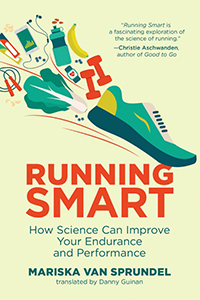
Mariska van Sprundel, Running Smart: How Science Can Improve Your Endurance and Performance, 2021.
Some thoughts on running: the right kind of shoe prevents injury—or running barefoot is best; eat a high-fat diet—and also carbo load before a race; running cures depression—but it might be addictive; running can save your life—although it can also destroy your knee cartilage. Often it's hard to know what to believe. Science journalist and runner Mariska van Sprundel dives into the science behind the above and other assumptions about running so you can make easier miles.
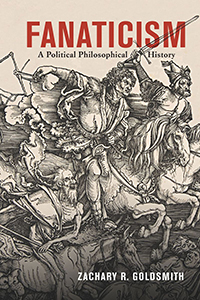
Zachary R. Goldsmith, Fanaticism. A Political Philosophical History, 2022.
As the post-World War II liberal democratic consensus comes under increasing assault around the globe, Zachary R. Goldsmith investigates a timely topic: the reemergence of fanaticism. He dives into the long history of fanaticism, detailing its many forms throughout history and for example its transformation from a primarily religious to a political concept around the time of the French Revolution. Goldsmith’s political-philosophical history of fanaticism offers us an argument and warning against fanaticism itself, demonstrating that fanaticism is antidemocratic, illiberal, antipolitical, and, he argues, never necessary.
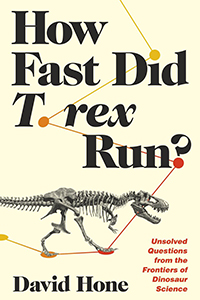
David Hone, How Fast did T.Rex Run?, 2022
David Hone describes the advances in palaeontology that are beginning to solve many of the mysteries surrounding these marvelous prehistoric creatures, from their ways of communicating to their mating habits, the color of their skin, their migration patterns and extinction. He discusses the history of what palaeontologists thought in the past, the new insights we are gleaning from recent fossil finds, the latest technologies and the gaps in our knowledge that still remain.
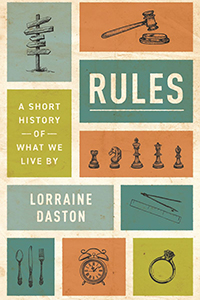
Lorraine Daston, Rules, A Short History of What We Live By, 2022.
Drawing on a rich trove of examples, including legal treatises, cookbooks, military manuals, traffic regulations, and game handbooks, Daston demonstrates that while the content of rules is dazzlingly diverse, the forms that they take are surprisingly few and long-lived.
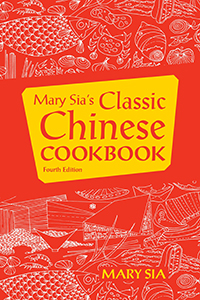
ed. Rachel Laudan, Mary Sia’s Classic Chinese Cookbook, 2021.
Surprise your taste buds with one of the 300 recipes from this cookbook originally published in 1956. Rachel Laudan updated the texts to modern English and provides her own spin to recipes by offering alternatives to ingredients that are less likely to be readily available in your local supermarket.
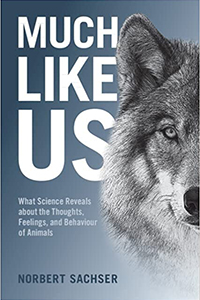
Norbert Sachser & Ruby Bilger, Much like us: what science reveals about the thoughts, feelings, and behaviour of animals, 2022.
Norbert Sachser, Professor of Zoölogy at the University of Münster, presents fascinating insights into the inner lives of animals, revealing what we now know about their thoughts, feelings and behaviour. He explains how dogs demonstrate empathy, why chimpanzees wage war and how crows and ravens craft tools to catch food. The closer you look, the more human our feathered, hairy, or scaly friends seem to get.
